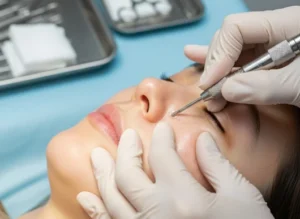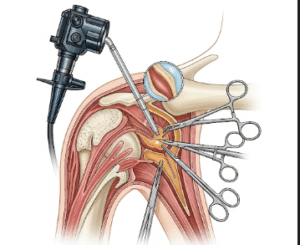Overview
Inattentive ADHD, also known as Attention-Deficit/Hyperactivity Disorder, Predominantly Inattentive Presentation, is a neurodevelopmental disorder characterized mainly by difficulties with attention, organization, and focus rather than hyperactivity or impulsiveness. It commonly affects children but can persist into adulthood. In Korea, specialized pediatric and adult psychiatry clinics provide comprehensive diagnosis and personalized treatment plans to help individuals manage symptoms and improve daily functioning.
What is Inattentive ADHD?
Inattentive ADHD is a subtype of ADHD where the primary challenges involve sustaining attention, following instructions, and organizing tasks. Unlike other types, hyperactivity and impulsivity are minimal or absent. Individuals with this subtype may seem daydreamy, forgetful, and easily distracted but may not exhibit disruptive behaviors.
Symptoms
- Difficulty sustaining attention on tasks or play activities
- Frequent careless mistakes in schoolwork or other activities
- Trouble organizing tasks and activities
- Easily distracted by extraneous stimuli
- Often loses items necessary for tasks (e.g., keys, school materials)
- Forgetfulness in daily activities
- Appears not to listen when spoken to directly
- Avoidance or dislike of tasks requiring sustained mental effort
Causes
- Genetic factors involving neurotransmitter systems like dopamine and norepinephrine
- Brain structure and functional differences affecting attention regulation
- Environmental influences including prenatal exposures and psychosocial stressors
Risk Factors
- Family history of ADHD or other psychiatric disorders
- Premature birth or low birth weight
- Exposure to tobacco, alcohol, or drugs during pregnancy
- Early childhood adversity or trauma
Complications
- Academic underachievement and learning difficulties
- Low self-esteem and social challenges
- Increased risk of anxiety, depression, and other mental health disorders
- Problems with employment and relationships in adulthood
Prevention
- Early screening and diagnosis in children showing attention difficulties
- Supportive educational and family environments
- Early behavioral interventions to improve coping skills
Treatment Options in Korea
Diagnosis
- Clinical assessment including standardized rating scales (e.g., Conners’ Rating Scales)
- Interviews with patient, parents, and teachers
- Neuropsychological testing when needed
Medical Treatments
- Stimulant medications such as methylphenidate and amphetamines – first-line treatment
- Non-stimulant medications like atomoxetine or guanfacine for those who cannot tolerate stimulants
- Regular monitoring for side effects and effectiveness
Psychosocial Treatments
- Behavioral therapy focusing on organizational skills and attention enhancement
- Parent training and school-based interventions
- Cognitive-behavioral therapy (CBT) for adolescents and adults
Rehabilitation and Support
- Academic accommodations and tutoring
- Skills training for time management and organization
- Support groups and counseling for patients and families
Top Hospitals or Clinics in Korea
- Seoul National University Hospital – Child and Adolescent Psychiatry
- Samsung Medical Center – ADHD Clinic
- Asan Medical Center – Psychiatry Department
- Yonsei Severance Hospital – Behavioral Medicine Unit













